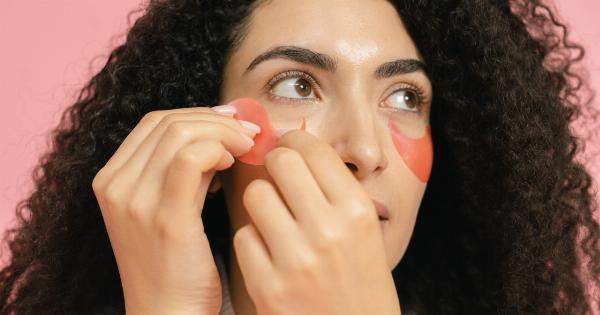Conjunctivitis, commonly known as pink eye, is an uncomfortable and highly contagious eye condition that affects people of all ages.
It is characterized by inflammation of the conjunctiva, the thin clear tissue that covers the white part of the eye and the inner surface of the eyelids. Conjunctivitis can be caused by bacteria, viruses, allergies, or irritants, and it often presents with symptoms such as redness, itching, watery discharge, and sensitivity to light.
When faced with conjunctivitis, many individuals unknowingly make a crucial error that can worsen the condition and prolong their discomfort.
By understanding and avoiding this error, you can effectively manage conjunctivitis and facilitate a quicker recovery.
Using Over-the-Counter Eye Drops without Medical Advice
One of the most common mistakes people make when dealing with conjunctivitis is self-medicating with over-the-counter (OTC) eye drops without consulting a healthcare professional.
While OTC eye drops may provide temporary relief for dry and irritated eyes, using them for conjunctivitis could do more harm than good, depending on the underlying cause of the infection.
There are different types of conjunctivitis, and each requires a specific treatment approach. Bacterial conjunctivitis, for example, is typically treated with antibiotic eye drops or ointments.
On the other hand, viral conjunctivitis does not respond to antibiotics and usually resolves on its own within a few days to two weeks. Allergic conjunctivitis may necessitate antihistamine eye drops or oral medications to alleviate symptoms.
By using OTC eye drops without proper medical advice, you risk misdiagnosing the type of conjunctivitis you have and potentially worsening the condition.
Some eye drops contain vasoconstrictors or decongestants that can temporarily reduce redness but may mask underlying issues or even exacerbate symptoms in the long run.
Seeing an Eye Care Professional
To avoid the crucial error of self-medicating, it is important to consult an eye care professional when dealing with conjunctivitis.
Whether it is an optometrist or an ophthalmologist, these specialists have the expertise and knowledge to accurately diagnose the type and cause of your conjunctivitis. They can then recommend appropriate treatments tailored to your specific situation.
During a consultation, the eye care professional will conduct a thorough examination of your eyes, including taking a detailed medical history and performing necessary tests.
This comprehensive approach allows them to identify the underlying cause of your conjunctivitis and ensure that you receive the most effective treatment. They may also provide you with valuable advice on hygiene practices, such as proper handwashing techniques and avoiding touching or rubbing your eyes to prevent spreading the infection.
Proper Hygiene Practices
Conjunctivitis is highly contagious, and practicing good hygiene is crucial to prevent its spread. By following a few simple steps, you can minimize the risk of infecting others or reinfecting yourself:.
- Wash Your Hands: Regularly wash your hands with soap and warm water for at least 20 seconds. Hand sanitizer can be used as an alternative if soap and water are not readily available.
- Avoid Touching Your Eyes: Try to resist the urge to touch or rub your eyes, as this can further irritate the infection and potentially spread it to other surfaces.
- Use Clean Towels and Linens: Avoid sharing towels, pillowcases, or any other items that come into contact with your eyes. Ensure that these items are washed thoroughly to remove any potentially infectious material.
- Practice Good Contact Lens Hygiene: If you wear contact lenses, follow proper disinfection and hygiene practices. Consider switching to glasses until your conjunctivitis has completely resolved to reduce the likelihood of contamination.
- Discard Eye Makeup Products: Eyeliner, mascara, and other eye makeup can harbor bacteria and worsen the infection. Discard any eye makeup or applicators used during the time of infection and replace them with new products after recovery.
Understanding the Importance of Timely Treatment
Another crucial error individuals make when dealing with conjunctivitis is delaying or avoiding treatment altogether.
While viral conjunctivitis may resolve on its own, bacterial and allergic conjunctivitis often require medical intervention to alleviate symptoms and prevent complications.
Bacterial conjunctivitis, if left untreated, can lead to more severe eye infections, such as a corneal ulcer or keratitis. These conditions can have long-term consequences on your vision and may require more aggressive treatments.
Allergic conjunctivitis, on the other hand, can significantly impact your quality of life if not managed properly, causing persistent itching, redness, and discomfort.
By seeking timely treatment, you can not only reduce your symptoms but also minimize the risk of complications and ensure a faster recovery.
Treatment options may include prescription eye drops, oral medications, or other therapies depending on the underlying cause.
Preventing Conjunctivitis
Prevention is always better than cure, and there are certain measures you can take to reduce the risk of developing conjunctivitis:.
- Practice Good Hygiene: As mentioned earlier, proper handwashing and avoiding touching your eyes are essential preventive measures.
- Stay Away from Infected Individuals: If someone in your household or close circle has conjunctivitis, try to avoid close contact until they are no longer contagious.
- Avoid Sharing Personal Items: Sharing items like towels, cosmetics, or eye drops can increase the chances of spreading the infection.
- Keep Allergens at Bay: If you are prone to allergic conjunctivitis, identify and minimize exposure to triggers such as pollen, pet dander, or dust mites.
- Clean and Disinfect Frequently-Touched Surfaces: High-touch surfaces, such as doorknobs, countertops, and electronics, can harbor infectious agents. Regularly clean and disinfect these areas to reduce the risk of transmission.
Conclusion
Dealing with conjunctivitis can be a challenging experience, but by avoiding the crucial error of self-medicating with over-the-counter eye drops and seeking professional medical advice, you can effectively manage the condition.
Remember to consult an eye care professional for an accurate diagnosis and appropriate treatment. Adhering to proper hygiene practices, seeking timely treatment, and taking preventive measures can help minimize the discomfort of conjunctivitis and promote a faster recovery.





























